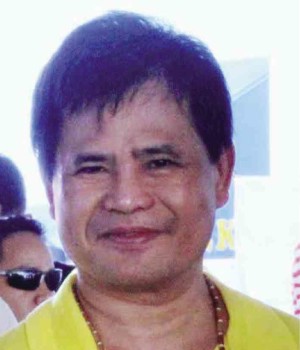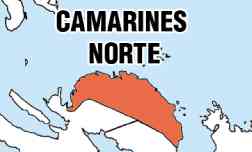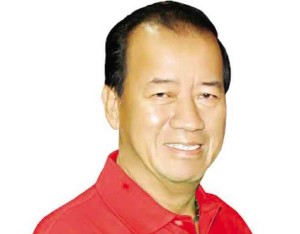Election 2016: Agenda of the Camarines Norte governor

THE BAGASBAS BEACH in Daet town is among the major tourist attractions of Camarines Norte province. MARK ALVIC ESPLANA/INQUIRER SOUTHERN LUZON
The Inquirer is coming out today with the 10th of its series on pressing people’s concerns that should be high on the agenda of candidates for representative, governor or mayor in the May 9 elections. The series should help voters in the provinces choose their leaders wisely. In line with our “ThINQ. Vote.” advocacy, we have asked candidates in certain provinces, cities and congressional districts to outline their concrete plans of action in dealing with specific issues in their areas.
Interviews by Juan Escandor Jr.
Profile: Camarines Norte province
At the border of Quezon province, more than 300 kilometers southeast of Manila, residents of six of the 12 towns of Camarines Norte province (first district) speak Tagalog while those of the other six towns near Camarines Sur province (second district) speak Bikol. As of 2010, their populations were 272,958 and 269,947, respectively.
In 2012, Camarines Norte recorded the least number of poor families (21.7 percent) among the six provinces of the Bicol region. Coconut is extensively grown, with more than 100,000 hectares out of the province’s land area of 232,007 ha planted with the crop. Other major agricultural products include rice, pineapple, cassava, corn and vegetables.
Article continues after this advertisementIt also hosts mining operations, with the government estimating the province’s metallic mineral reserve at 125,278,390 metric tons.
Article continues after this advertisementCapital: Daet
Total population: 542,915 (as of 2010)
Average population density: 234 per square kilometer
Income classification: Second class
Number of barangay: 232
Sources: Camarines Norte Socio-Economic Profile, National Statistical Coordination Board, Commission on Elections and Philippine Statistics Authority
Mining
How will you handle the small-scale gold mining industry in the towns of Paracale, Jose Panganiban and Labo, considering the impact of mining on the environment and the safety of miners? An application for gold exploration in Mt. Labo, which would affect a watershed where 25,000 households get their water supply, is pending at the Mines and Geosciences Bureau. What is your position on this issue?
Catherine Barcelona Reyes
Coordinate with the small-scale gold mining sector to put in place a “Minahang Bayan.”
Coordinate with the Department of Environment and Natural Resources (DENR), through its Mines and Geosciences Bureau, in instituting a rehabilitation plan to ensure safeguards and prevent the destruction of the environment.
On the application for gold exploration in Labo, conduct public consultation and hearing in Barangays Napaod and Benit to get public sentiment on the proposed project and put up measures to protect our source of water supply.
Clint Saniel
Independent

Focus on the health condition of miners and their work safety. They should be covered by PhilHealth.
Implement the law on Minahang Bayan.
I am against the Mt. Labo gold exploration because its operation will destroy our water supply and natural resources.
Edgardo Tallado
Nationalist People’s Coalition
Continue pushing for the approval of the Minahang Bayan application with the DENR. With its approval, the provincial government has the power to regulate small-scale mining and enforce prohibition of hazardous mining practices.
The application for gold exploration permit in Mt. Labo will be rejected in favor of the preservation of the watershed area, the main source of water supply of the Camarines Norte Water District and irrigation covering eight towns.
Jesus Typoco Jr.
Nacionalista Party
During my nine years of incumbency as governor, I authorized the Provincial Mining Board to regulate, facilitate, inspect and approve permits intended for small-scale miners.
I instructed the police to stay away from financiers and high graders to avoid red tape among their ranks.
Road rehabilitation and infrastructure
What are your programs in improving and maintaining the quality of the province’s roads, considering that more than 66 percent of the 1,546.49 kilometers of road network in the province needed repair?
Catherine Barcelona Reyes
Liberal Party
Create an infrastructure task force whose primary function is to work closely with the Department of Public Works and Highways and other government agencies involved in road construction and rehabilitation to monitor implementation and report [on its progress] to ensure quality workmanship.
Clint Saniel
Independent
Build more farm-to-market roads.
Edgardo Tallado

After successfully building about 400 km of new concrete roads in the last six years, continue the strategy of “counterparting” with national agencies, wherein the local government contributes 10 percent of the total project cost to rehabilitate and build new roads and bridges.
Jesus Typoco Jr.
Nacionalista Party
As infrastructure development is very important to the improvement of different sectors, such as transportation and tourism, pursue infrastructure development in the province to improve farm-to-market roads [so we will have] quality road networks.
Agriculture
What are your plans to help the agricultural sector in the province, in terms of projects and budgetary allocations that would lower production cost, provide input subsidies, establish link to market and increase agricultural productivity?
Catherine Barcelona Reyes
Liberal Party
Allocate funds for a form of credit for certified seeds, fertilizers and chemicals for farmers to double their rice production and provide them adequate income to uplift their living standards.
Ask the Department of Agriculture (DA) for assistance in providing postharvest facilities, such as palay thresher, moisture tester, weighing scale and dryers to maximize production.
Partner with the National Food Authority to increase market for rice farmers and provide reasonable returns for them.
Clint Saniel
Independent
Initiate dialogue with farmers to know what they need.
Launch a marketing campaign so local produce can compete in the market.
Edgardo Tallado
Nationalist People’s Coalition
In agriculture, we also do “counterparting” with concerned national agencies to improve facilities like farm-to-market roads, irrigation systems, warehouses, cold storage and marketing centers. [The] bulk of funds [for these projects] comes from the DA, Department of Agrarian Reform and the National Irrigation Administration.
Jesus Typoco Jr.
Identify products of competitive advantage for the province, improve productivity and support farmers through seminars and training to strengthen their agricultural knowledge and improve their yield.
Provide provincial government support for farmers to increase their production and help them in marketing their agricultural [products].


